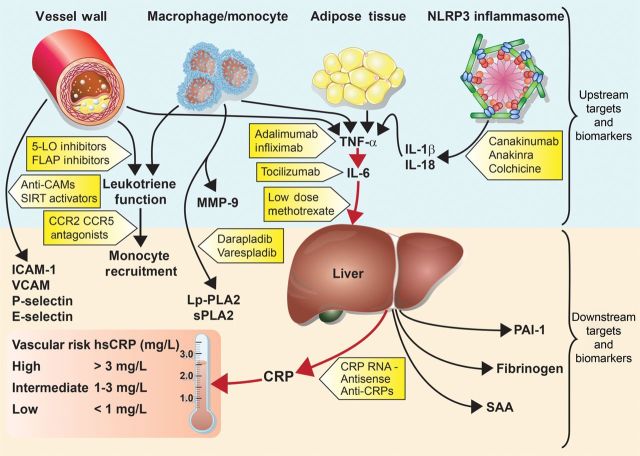Schizophrenia is a serious and chronic mental health condition that affects how a person thinks, feels, and behaves. People living with schizophrenia may experience distorted thoughts, emotions, and perceptions, making it difficult for them to distinguish between reality and imagination. It’s not about “split personalities” — which is a common myth — but rather about disrupted brain functioning that impacts daily life.
While schizophrenia can be challenging, it is treatable and manageable with the right medical care, therapy, and family support. The key is recognizing the symptoms early and seeking professional help promptly.
What Is Schizophrenia?
Schizophrenia is a psychiatric disorder that alters how a person processes information and interacts with their surroundings. People with this condition may experience hallucinations (hearing or seeing things that aren’t there), delusions (strong false beliefs), or disorganized thinking and speech.
The illness typically appears in late adolescence or early adulthood, though it can develop at other ages as well. Men often develop symptoms earlier than women. Schizophrenia doesn’t mean a person is violent or dangerous — in fact, most individuals with this condition are not a threat to others.
This is a long-term condition, but with consistent treatment, many people lead productive, fulfilling lives. Early diagnosis and a supportive environment can significantly improve the quality of life.
Common Symptoms of Schizophrenia
Symptoms of schizophrenia can vary from person to person, but they generally fall into three main categories: positive, negative, and cognitive symptoms.
- Positive Symptoms: These are experiences that add something to the person’s perception of reality. They include hallucinations (hearing voices or seeing things), delusions (false beliefs that don’t match reality), and disorganized speech or behavior.
- Negative Symptoms: These involve a loss or reduction of normal abilities, such as lack of motivation, flat emotional expression, reduced speech, or social withdrawal.
- Cognitive Symptoms: These affect thinking and concentration. People may have trouble focusing, processing information, or making decisions.
Other common signs include:
- Difficulty understanding or expressing emotions
- Lack of interest in daily activities
- Disturbed sleep patterns
- Difficulty maintaining relationships or work responsibilities
Because the symptoms may develop gradually, early signs are sometimes mistaken for stress, depression, or personality changes.
Causes of Schizophrenia
There isn’t a single known cause of schizophrenia — it results from a combination of genetic, biological, and environmental factors.
- Genetics: People with a family history of schizophrenia have a higher risk, though it doesn’t guarantee they’ll develop the condition.
- Brain Chemistry: Imbalances in brain chemicals such as dopamine and glutamate play a major role in how the brain processes information.
- Brain Structure: Studies have found differences in brain structure and functioning in people with schizophrenia.
- Environmental Triggers: Stressful life events, trauma, drug use (especially during teenage years), and infections during pregnancy may increase the risk.
- Substance Use: Some recreational drugs can trigger psychotic episodes or worsen existing symptoms in vulnerable individuals.
It’s important to note that having a risk factor doesn’t mean someone will develop schizophrenia, but being aware of these risks can help with early detection and intervention.
How Schizophrenia Is Diagnosed
Diagnosing schizophrenia involves a thorough psychiatric evaluation. There is no single test, but mental health professionals use several methods to assess symptoms and rule out other conditions.
- Medical and Psychiatric History: Doctors review personal and family history to understand patterns.
- Clinical Interviews: Psychiatrists talk to the patient about their thoughts, behaviors, and experiences.
- Observation: Behavior, mood, and speech patterns are observed over time.
- Lab Tests or Imaging: These help rule out other medical conditions that could mimic schizophrenia, like thyroid disorders or brain tumors.
- Diagnostic Criteria: A person must have specific symptoms for at least six months for a confirmed diagnosis.
Early diagnosis is crucial because early treatment can reduce symptom severity and improve long-term outcomes.
Treatment Options for Schizophrenia
Schizophrenia requires a long-term, comprehensive treatment plan tailored to the individual. Although it can’t be “cured,” the right combination of therapies can help manage symptoms effectively.
- Medication: Antipsychotic medications are the primary treatment. They help reduce hallucinations, delusions, and disorganized thinking. Doctors may adjust doses and types of medication to minimize side effects.
- Psychotherapy: Cognitive Behavioral Therapy (CBT) and other talk therapies help patients manage symptoms, improve thinking skills, and cope with daily challenges.
- Social and Vocational Support: Programs that help with social skills, job training, and community living can make a big difference in recovery.
- Hospitalization (if needed): In severe cases, short-term hospital care may be required to stabilize symptoms.
👉 If you or a loved one are experiencing symptoms, it’s essential to seek help from a qualified psychiatrist or psychologist. You can book an appointment with the best General Physician or mental health specialist through InstaCare for proper diagnosis, treatment, and support.
Living with Schizophrenia
Living with schizophrenia can be challenging, but many people manage their condition successfully with proper care. Support from family and friends plays a crucial role in recovery.
A structured daily routine, healthy lifestyle choices, avoiding drugs or alcohol, and staying consistent with treatment can help maintain stability. Therapy can also assist patients in building confidence, improving communication, and staying connected with loved ones.
When to Seek Medical Help
Early intervention makes a huge difference in managing schizophrenia. Seek medical help if someone shows signs such as:
- Persistent hallucinations or delusions
- Disorganized speech or behavior
- Withdrawal from family, friends, or work
- Unusual decline in daily functioning
- Emotional flatness or lack of motivation
If symptoms are severe or the person poses a danger to themselves or others, immediate medical attention is necessary.
Conclusion
Schizophrenia is a complex but manageable mental health condition. With the right combination of medication, therapy, and social support, many individuals live meaningful, independent lives. Breaking the stigma and encouraging open conversations about mental health can make it easier for those affected to seek help.
👉 If you or someone you care about is showing signs of schizophrenia, don’t wait — book an appointment with a mental health professional through InstaCare for early diagnosis and effective treatment.
Frequently Asked Questions (FAQs)
- Is schizophrenia the same as multiple personality disorder?
No, schizophrenia is not the same as multiple personality disorder. Schizophrenia involves distorted thinking, hallucinations, or delusions, while multiple personality disorder (now called dissociative identity disorder) involves two or more distinct identities or personalities.
- Can schizophrenia be cured completely?
There’s currently no complete cure for schizophrenia, but with proper treatment, symptoms can be effectively managed. Many patients lead fulfilling lives through medication, therapy, and lifestyle adjustments.
- What age does schizophrenia usually start?
Schizophrenia typically begins in late teens to early 30s. Men often experience symptoms earlier (late teens to early 20s), while women usually develop symptoms in their late 20s to early 30s. However, it can occur at other ages too.


